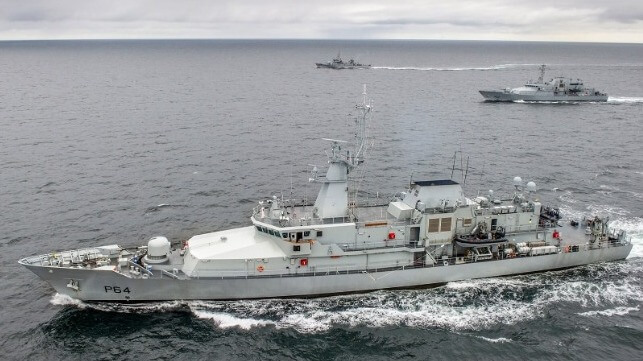Short on Skilled Sailors, Irish Navy Hires Recruiter for Global Search

The U.S. Navy may have its fair share of recruiting problems, but these pale in comparison to the challenges facing the Irish Naval Service. Ireland's navy has a chronic shortage of skilled personnel, particularly in engineering and technical specialties, and the staffing shortfall has become so serious that it sometimes cannot send ships to sea. According to the Irish Examiner, the service has decided to take the same route as other maritime employers who find themselves in this situation - hiring a manning agency.
The service has selected Galway-based Flagship Maritime Consultants Ltd. to head up a global recruitment campaign, according to the paper. The goal is to hire in more marine engineers, radio officers, electricians and other experienced personnel. If successful, this could help stem the tide of defections to higher-paying employers, like the UK Royal Navy, the civilian maritime sector and the shoreside labor market, which is red-hot in Ireland.
Without more personnel, Ireland will have more days without a naval presence at sea - on top of the 39 patrol-free days it has had so far this year.
These shortcomings are most noticeable during periods of heightened Russian patrol activity. Russian activity in waters around the UK has increased dramatically in the past three years, and officials are particularly concerned about the potential threat to subsea infrastructure. Earlier this year, a Russian Navy task force loitered off southwestern Ireland in an area known for a concentration of subsea telecom cable infrastructure, and the Irish Naval Service had limited capability to monitor and respond.
The service even has limited capability to keep tabs on its allies' operations in Irish waters, one insider told Irish Times. A U.S. Navy-owned dive support vessel has been operating off County Cork for months with AIS largely turned off, possibly for the purpose of placing sub-tracking hydrophone systems in secret. “It’s not that it poses a national security threat necessarily. It’s more that it shows our inability to monitor what’s happening in our own backyard, whether it’s the Russians or Americans or whoever,” a military source told Irish Times.

that matters most
Get the latest maritime news delivered to your inbox daily.
The recruiting problem, according to many former servicemembers, is a function of pay and benefits. Ireland's military pay schedule has changed little in years, and with abundant and better-paying opportunities in the private sector, skilled personnel have little incentive to stay. The Irish government currently spends less than one percent of local GDP on defense, and until this underlying factor changes, recruitment may be a persistent problem.
“These people’s skills are highly prized, and we've warned for years that the shortage was coming down the tracks and that people were voting with their feet because we didn’t have a proper retention and remuneration policy to keep them," said Mark Keane, head of armed-forces union PDForra, speaking to the Irish Examiner.
